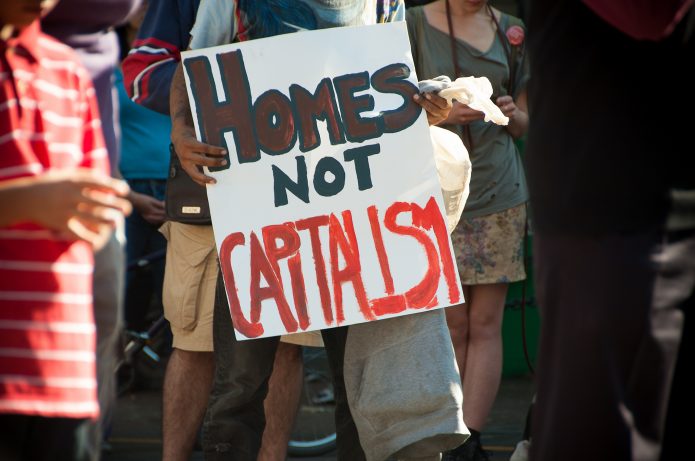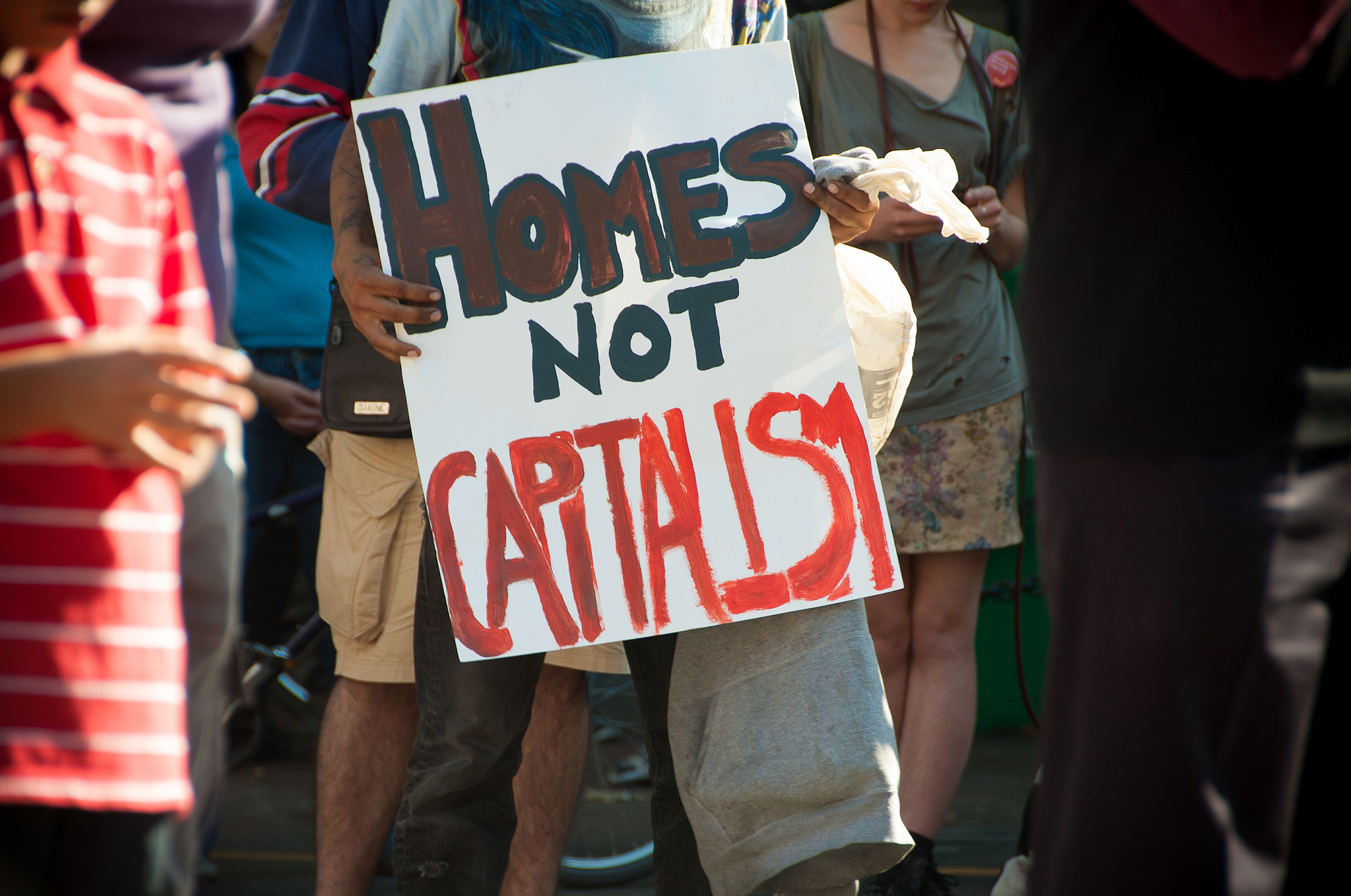
(Photo: Flickr/ Caelie Frampton)
If you’ve never been forced out of your home by a county sheriff while movers carry all of your earthly possessions out onto the curb, knowing what that experience feels like can be almost impossible. Matthew Desmond’s brilliant book, Evicted: Poverty and Profit in the American City, provides a small window into the lives of families who know that feeling all too well.
Desmond, a just-named Pulitzer Prize winner for his work, spent five years “embedded” in Milwaukee, building the trust of tenants and landlords alike. They shared a level of detail and intrigue that sometimes seems more fitting for a novel than a wonky social policy book.
Three out of four families who qualify for housing assistance, Desmond points out, do not currently receive it. One reason: Public funding has trickled away from housing, leaving the supply of affordable housing miniscule compared to the need. But Desmond, a Harvard sociologist and MacArthur Genius award winner, also has all the numbers behind his engaging stories. Evicted manages to fit in mountains of data.
“If we want to erase poverty,” Desmond claims, “we need to do something about affordable housing. Without stable shelter, everything else falls apart.”
Why do we need to subsidize housing in the first place? Simple. Housing costs have soared, incomes have not. Not a single major city in the United States has a minimum wage in effect that could cover the basic cost of living for an adult, much less a family with children. And the subsidies required to make up the difference remain pitifully inadequate.
Evictions don’t so much reflect poverty, Desmond argues, they cause it. Evicted families lose their homes, their communities, their schools, and even their jobs and possessions. To add insult to injury, many end up with court records because they can’t afford the fees associated with their evictions, a record that can later block access to affordable housing.
Evictions used to be rather rare. Crowds sometimes came out to watch and to protest. Evictions have now become a way of life for thousands of families who bounce between temporary shelters, short-term leases, and unstable nomadic lifestyles.
Some cities now have sheriff squads that concentrate solely on evicting families. Moving companies also specialize in evictions — and profit off the pain.
Evictions hurt just everyone else — the families involved, the neighborhood, and the community. Yet until we collectively find the public will to address runaway inequality and the affordable housing crisis, evictions will continue on.
Evicted gives this ongoing crisis the spotlight that has been missing for far too long.
